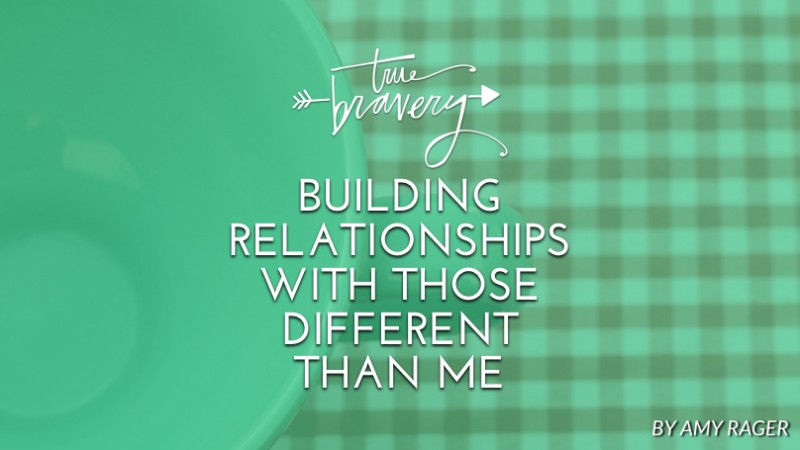It’s hard to imagine there existed a time before walls. Today, we can barely imagine how this unfenced-reality must have impacted the daily lives of early humankind. Shepherds had a full time job keeping their sheep from wandering away or into danger. Monuments and markers designated what land was owned by who, and an honor system kept strangers from utilizing the fruit of another’s land. Genesis contains many examples of families having to move and settle a new parcel of land in order to keep their prosperity from threatening others.
It isn’t until the formation of cities that we see walls. Population density not only promoted the common good, it provided enough collective labor in small enough a space to enable citizens to fortify a wall and keep outsiders out. Unknown peoples had unknown motives, unknown plans, unknown skills and unknown ethos. Neighbors—and their walls—worked to protect their collective unit from real and perceived threats to their way of life.
Fast forward through centuries of development, ingenuity and technology, and we arrive in our era where we can pay a security company to technologically fence our homes and monitor our possessions via our cell phones.
The over-abundance of (and perhaps the sensationalism of) news leaves us feeling constantly threatened by those around us, and, as our world becomes increasingly diverse, the presence of those often perceived as unknown peoples with unknown motives, unknown plans, unknown skills and unknown ethos grows.
The desire to protect ourselves, our families and the goods we’ve collected is not a new concept. Nor is it an inherently bad one. But like everything concerning fallen beings, it can become a form of evil. The facades of our homes can mirror the condition of our hearts. Even a godly desire to protect ourselves and our families from ways of thought that are contrary to orthodox Christianity can turn toxic, keeping us sequestered into communities physically distant from those of other faiths, hampering the God-ordained flow of the gospel through relationships and interactions.
Tony Evans penned a terribly sad line in his book Oneness Embraced: “A lot of times we want to get people to heaven whom we are not willing to relate to on earth.” But I’m afraid Mr. Evans was too kind. Can it truly be said that we want to get those we’re afraid to relate to heaven? As Jesus said when he took the opposite approach and was declared a friend of and sinners, ‘wisdom is justified by her deeds.’ We all know truth grenades launched from afar don’t generate salvation, so our deeds- and distance- demonstrate a true lack of concern.
How can we claim to follow an incarnate Christ while living a life of separation?
In Exclusion and Embrace, Miroslav Volf says “Christians must learn that salvation comes … as we take the dangerous and costly step of opening ourselves to the other, of enfolding him or her in the same embrace with which we have been enfolded by God.”
And taking taking that “dangerous and costly step” towards others will require true bravery. We must leave pre-occupation of ourselves behind. We must yield our own comfort.
While there are practical ways to decrease the amount of danger perceived in engaging those different than ourselves- such as taking time to learn about other cultures and people groups (including the positive impact diversity brings to situations), starting relationships through shared interest and activities, firming up one’s belief in the provision and sovereignty of God, etc- the fact of the matter is fear is no excuse for disobeying the clear call of God.
“Go therefore and make disciples of all nations, baptizing them in the name of the Father and of the Son and of the Holy Spirit …” (Matthew 28:19).
“Go on your way. Behold, I am sending you out as lambs in the midst of wolves. Carry no moneybag, no knapsack, no sandals, and greet no one on the road. Whatever house you enter, first say, ‘Peace be to this house!’ ” (Luke 10:3-5).
“My brothers, show no partiality as you hold the faith in our Lord Jesus Christ, the Lord of glory” (James 2:1).
“Now I rejoice in my sufferings for your sake, and in my flesh I am filling up what is lacking in Christ’s afflictions for the sake of his body, that is, the church, of which I became a minister according to the stewardship from God that was given to me for you, to make the word of God fully known, the mystery hidden for ages and generations but now revealed to his saints. To them God chose to make known how great among the Gentiles are the riches of the glory of this mystery, which is Christ in you, the hope of glory.” (Colossians 1:24-27)
While fear of those different from ourselves may be common to history and humanity, our calling has never been and will never be to do what is natural or feels least scary. The LORD said to his people in Deuteronomy: “‘For this commandment that I command you today is not too hard for you, neither is it far off. It is not in heaven, that you should say, ‘Who will ascend to heaven for us and bring it to us, that we may hear it and do it?’ Neither is it beyond the sea, that you should say, ‘Who will go over the sea for us and bring it to us, that we may hear it and do it?’ But the word is very near you. It is in your mouth and in your heart, so that you can do it.’”
Believers, we possess everything we need to share the love of Christ with everyone around us- it is in our mouths and in our hearts. Our future is secure in our Father who owns all the cattle on all the hills. It’s time to repent of our inordinate desires for comfort and security. It’s time to stop living in fear and building walls where they aren’t absolutely necessary. It’s time to see the image of God in every face that God has placed in our field of vision. It’s time to count others as more important that ourselves. Widespread, sweeping neglect of our incarnational duty calls for widespread, sweeping repentance and change.
Falling down upon our knees,
Sharing now in common shame.
We have sought security,
Not the cross that bares your name.
Fences guard our hearts and homes;
Comfort sings a siren tune.
We’re a valley of dry bones;
Lead us back to to life in you.
(Lead us Back by Bobby Gilles and Sojourn Music)
Resources for further reading:
- Inclusion & Embrace: A Theological Exploration of Identity, Otherness, and Reconciliation by Miroslav Volf
- Oneness Embraced by Tony Evans
- 10 Counsels on spiritual formation
- Building bridges when the church wants walls
Published January 23, 2017



